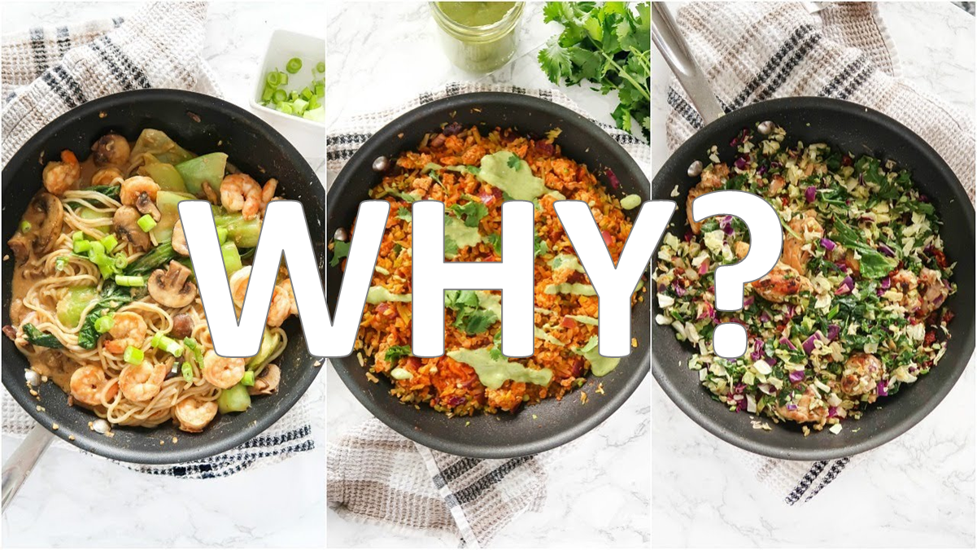We need food to survive — but do we really need to watch what other people eat as well? According to the recently popular #whatieatinaday on TikTok, that sentiment seems to be true with most social media users and health-conscious consumers.
If you’ve been on TikTok or any other social media platform recently, you’ve probably encountered this unusual trend in your feed a couple of times. The hashtag itself has about 10.3 billion views with these short videos typically featuring young women showing you what they eat on a day-to-day basis. This begs the question: What’s so important about these videos and why are they so popular?
The video style originally stemmed from the diet culture community that is already prevalent across social media. While the intention is to show viewers what foods they need to eat in order to achieve a supposed “healthier lifestyle,” this trend has had negative impacts as well.
Clinical Psychologist Allison Chase, highlights the downsides of these types of videos in her article written for The Lily, where she explains, “There’s a spectrum of how this trend can give rise to body image issues, old and new. For those who have already struggled with eating disorders, seeing #whatieatinaday videos can trigger even more unhealthy habits.”
These videos, more often than not, are usually accompanied by thin bodies presenting low calorie meals that seem almost unsustainable for normal eating habits. This is something that Queens College students have noticed while watching these clips.
“They put unrealistic expectations on teenage young adult women, where the message to them is to eat this and maintain a certain body type,” Sophomore Samihah Tahsin tells The Knight News, adding, “These videos are so misleading because they are planned and organized in a way which isn’t authentic at all.”
With the popularity of #whatieatinaday, it becomes difficult to determine whether these videos are made with good intentions, or perhaps used as a way to garner further attention.
In fact, according to Health.com, the trend of presenting aesthetically pleasing yet unfulfilling meals is known to “promote eating disorders and overall poor self-esteem.” These symptoms seem all too similar when compared to other aspects of social media as a virtual space.
Despite these implications, viewers still remain interested in seeing what other people eat, perhaps out of curiosity. “I like seeing what other people eat,” explains Queens College student Carol Guachichulca. “It’s interesting, but there is a comparison aspect to it as well.”
For social media users like Carol, these videos were mostly positive and even encouraged her to try different recipes and to remember to eat more protein.
Health experts have also weighed in on the TikTok trend, with University of New South Wales Sociology Professor Deborah Lipton explaining, “Content about eating disorder recovery can be ‘helpful and supportive’ for people with similar experiences. It can feel like you’re eating with another person who encourages you to eat.” As a result, these videos can be a comfort for those who struggle with eating disorders.
While there have been multiple discussions about #whatieatinaday videos and the different implications behind them, for college students like Samihah, the negatives outweigh any positives altogether.
“It depends on the video type and how choreographed it is,” she explains to The Knight News, adding that, “but it’s more unhealthy than not because only you know what your body needs. It’s better for you to understand what your body needs and do your own research instead of it being based on other people’s needs.”
However, Samihah doesn’t discredit the more positive and authentic food bloggers out there. One such person is Lisa Nguyen, a Vietnamese creator on Youtube and Tiktok who films herself eating, cooking, and trying new foods. Samihah believes her popularity is due to her honesty about her eating habits, and how attainable they are for college students.
With TikTok trends like #whatieatinaday impacting diet culture and introducing new topics about the foods we eat for survival, what remains to be true is the underlying caution and sometimes, even additional research necessary when browsing these “healthy” diets.











